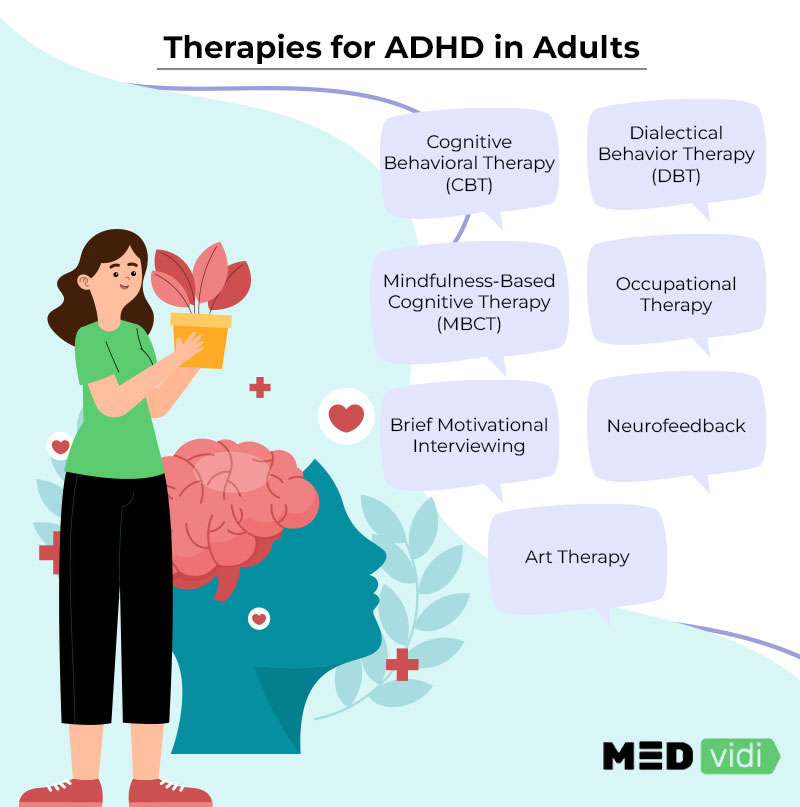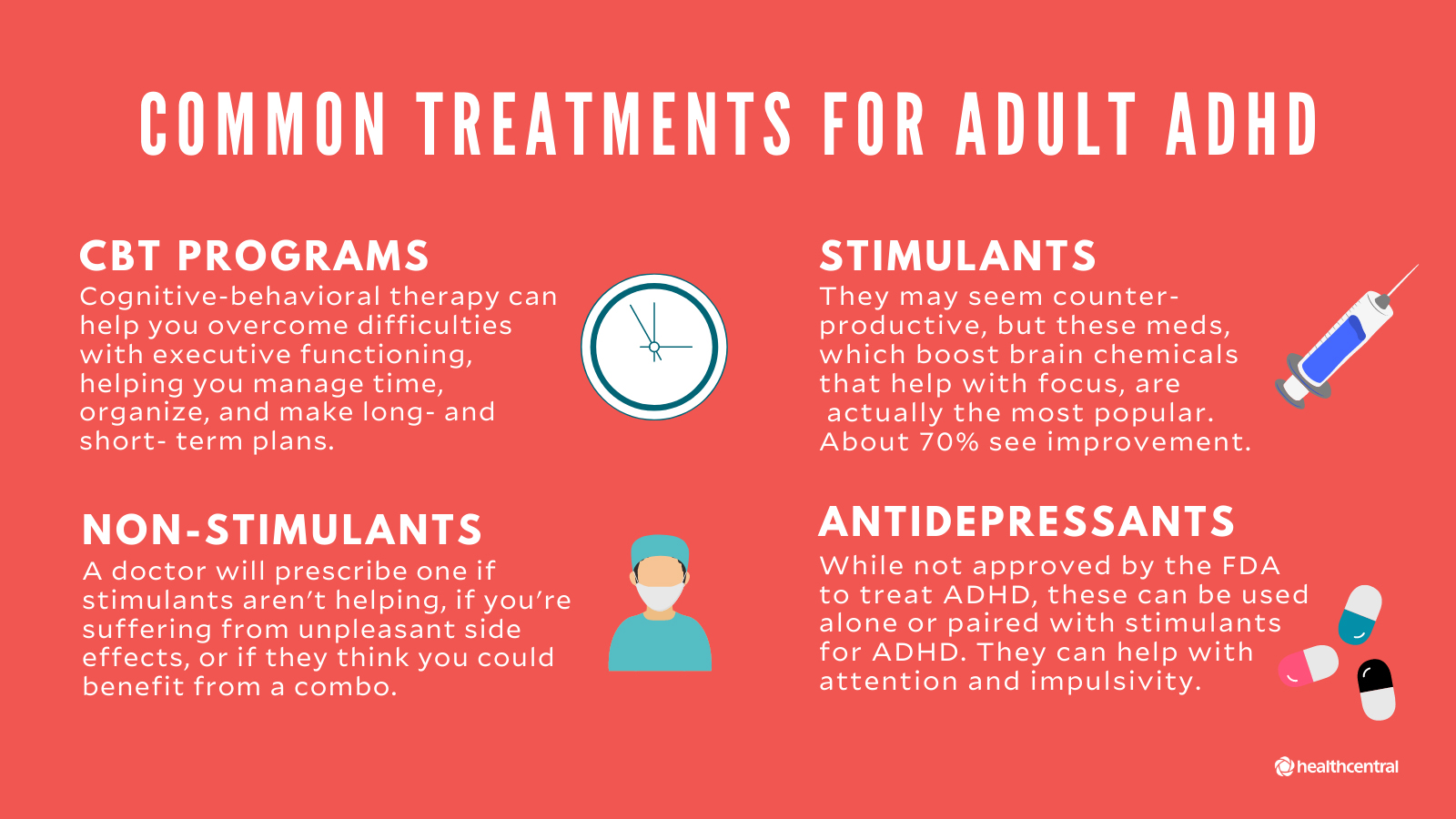Personalized Depression Treatment for Balanced Mental Health
Personalized Depression Treatment for Balanced Mental Health
Blog Article
Your Overview to Discovering the Right ADHD Treatment for Long-term Outcomes
Navigating the complexities of ADHD therapy requires a nuanced understanding of both the condition and the myriad choices readily available for reliable management. It is vital to recognize that what jobs for one person may not necessarily yield the same outcomes for another. Therefore, a tailored approach-- including specialist assistance, medication, behavioral methods, and lifestyle changes-- comes to be critical. However, the trip toward determining one of the most suitable treatment strategy can be filled with difficulties. What are the essential elements that affect effective results, and how can individuals guarantee they are on the appropriate course?
Recognizing ADHD and Its Effect

In grownups, ADHD can cause obstacles in office atmospheres, influencing efficiency, time monitoring, and social connections. Usually, undiagnosed or poorly handled ADHD can add to co-occurring psychological health issues, such as anxiousness and depression, further complicating a person's overall wellness.
The social understanding of ADHD can vary, causing preconception and misunderstanding, which might hinder people from seeking assistance. As understanding expands, it is essential to foster a setting that advertises understanding and support for those influenced by ADHD, emphasizing the demand for exact medical diagnosis and customized techniques to minimize its influence on daily life.
Introduction of Therapy Choices
A thorough technique to treating ADHD includes a selection of choices tailored to the person's one-of-a-kind requirements. These choices can broadly be classified into behavior interventions, psychoeducation, and lifestyle adjustments, alongside pharmacological treatments that might be explored later.
Behavior treatments, such as cognitive-behavioral therapy (CBT), focus on customizing specific behaviors and developing coping methods to take care of signs and symptoms properly. Psychoeducation plays an important function in encouraging both individuals and their households by supplying details regarding ADHD, its obstacles, and reliable methods for support.
Way of living adjustments can significantly influence ADHD administration. Regular exercise, a balanced diet regimen, and sufficient sleep add to general wellness and signs and symptom control. Mindfulness practices and relaxation methods can likewise improve emphasis and decrease impulsivity.
Support teams and household treatment can foster a sense of community and understanding, assisting individuals really feel much less isolated in their experiences. Each treatment alternative need to be taken into consideration in conjunction with the individual's choices and situations, making sure an alternative technique that advertises lasting success. Eventually, the objective is to produce an individualized treatment plan that attends to the particular obstacles connected with ADHD while enhancing total quality of life.
Drug: Advantages And Disadvantages
Drug plays an essential role in the therapy of ADHD, with numerous alternatives offered that can substantially cantera psychiatry alleviate signs for several people. Energizers, such as methylphenidate and amphetamines, are generally recommended Homepage and have revealed performance in improving emphasis, lowering impulsivity, and improving total behavior. These drugs work by enhancing dopamine and norepinephrine degrees in the brain, which are commonly dysregulated in those with ADHD.
However, using medication is not without its difficulties. Some people may experience adverse effects, including sleeping disorders, lowered hunger, or enhanced anxiety. In addition, finding the ideal dosage can be an experimental process, calling for close tracking by health care professionals. In addition, not all clients respond to stimulant medicines, leading some to check out non-stimulant alternatives, which may have a postponed beginning of action or different negative effects.
It is crucial for individuals and their households to weigh these advantages and disadvantages meticulously. Balancing the benefits of signs and symptom administration versus possible adverse effects is crucial for achieving optimum treatment outcomes. Partnership with doctor can promote informed choices, making sure that medication is component of a detailed ADHD administration strategy.
Behavioral Therapy Techniques

One typically used approach is Cognitive Behavior modification (CBT), which helps individuals determine and change unfavorable thought patterns that add to ADHD-related challenges. Therapist for ADHD. Through CBT, clients discover to set sensible goals, handle time efficiently, and establish organizational systems
Another efficient strategy is youth and family counseling Parent Management Training (PMT), which informs parents on just how to reinforce favorable actions and minimize negative ones via constant technique and communication techniques. This strategy promotes a helpful home atmosphere that urges behavior enhancements.
Social abilities training is also important, aiding people with ADHD navigate social interactions better. Role-playing and modeling proper habits can boost social skills and minimize anxiousness in social scenarios.
Way Of Living Adjustments for Better Management
Exactly how can way of life adjustments substantially boost the monitoring of ADHD symptoms? Carrying out critical way of living modifications can result in significant enhancements in emphasis, organization, and psychological law for people with ADHD.
To start with, establishing a structured day-to-day regimen aids in creating predictability, which can reduce sensations of overwhelm. Constant schedules for meals, research, and rest can enhance day-to-day performance.
Incorporating regular physical task is also crucial, as workout has been shown to increase dopamine degrees, improving interest and inspiration (Therapist for ADHD). Aiming for at the very least thirty minutes of moderate exercise most days can be beneficial
Nutrition plays a critical duty too. A balanced diet abundant in omega-3 fatty acids, entire grains, and healthy protein can sustain cognitive feature. Restricting processed sugars and high levels of caffeine may decrease symptoms, as these can cause energy crashes and irritability.
Conclusion
In verdict, finding the right ADHD therapy necessitates a multifaceted method that takes into consideration specific demands and choices. A combination of drug, behavior modification, and way of living modifications can considerably boost symptom management and total health. Taking part in psychoeducation and developing structured routines further sustains efficient treatment techniques. Collaboration with health care professionals and open communication with support networks are essential elements in browsing the complexities of ADHD monitoring, inevitably resulting in long-term results and boosted top quality of life.
Report this page